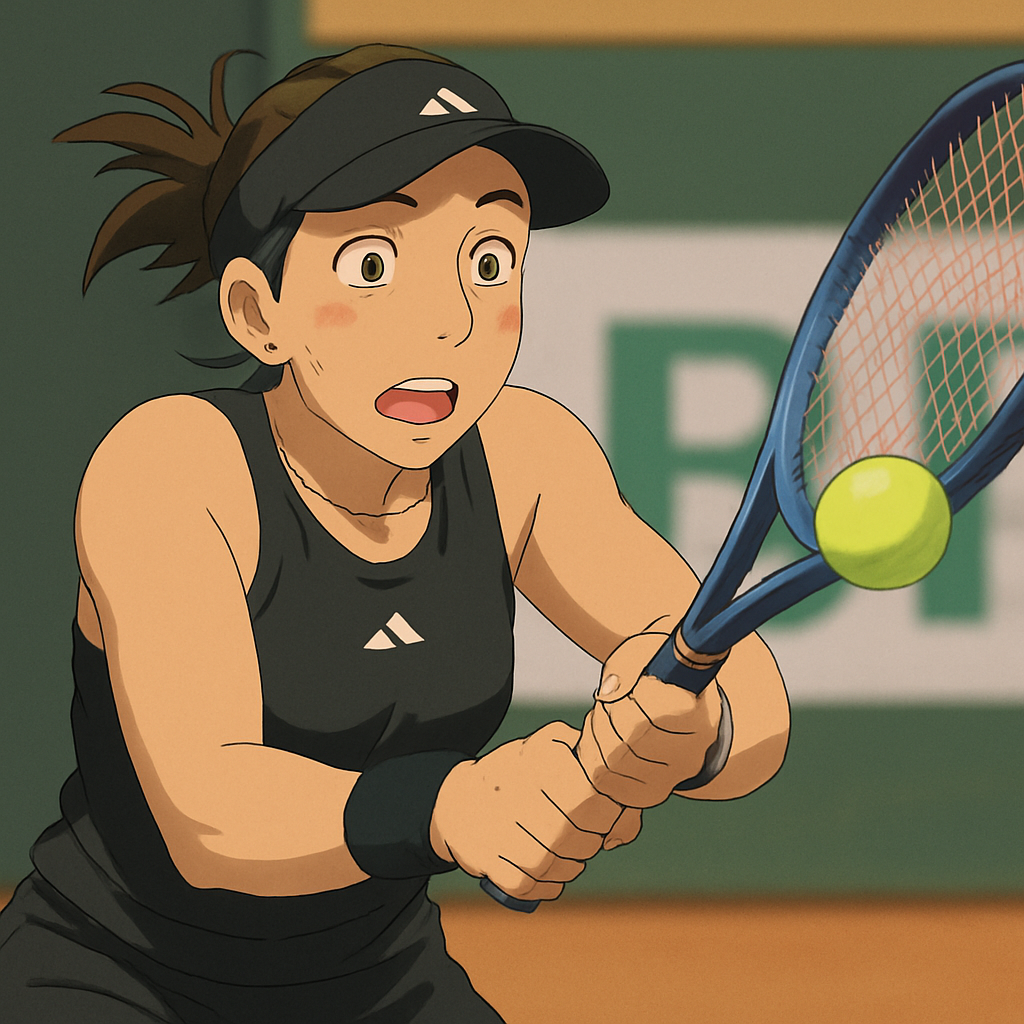PARIS — American tennis star Jessica Pegula has waded into the ongoing controversy surrounding the French Open’s scheduling decisions, accusing tournament organizers of sidelining women’s matches in favor of men’s contests during the coveted night sessions. The world No. 5 did not hold back in her criticism, claiming that Roland Garros chiefs "don’t really care" about gender equality in scheduling.
Pegula’s comments came after the tournament faced backlash for scheduling just one women’s match in the first nine night sessions of the 2024 French Open. The night slot, introduced in 2021, has become a prime-time attraction, featuring marquee matches under the lights—but women have been consistently overlooked. "It’s disappointing, but not surprising," Pegula said in a press conference.
A Pattern of Exclusion
The issue gained traction when defending champion Iga Świątek, the world No. 1, was relegated to afternoon sessions despite her dominance in women’s tennis. Meanwhile, male stars like Novak Djokovic and Rafael Nadal were repeatedly featured in prime time. Pegula pointed out that this wasn’t an isolated incident but part of a broader trend in tennis. "It’s not just here—it happens at other tournaments too, but it’s especially obvious at the Slams," she said.
Key statistics from the tournament’s scheduling decisions reveal a stark disparity:
- Only 1 women’s match in the first 9 night sessions
- Men’s matches accounted for 89% of night-session slots
- No women’s quarterfinal was scheduled at night
Tournament Organizers’ Defense
French Open tournament director Amélie Mauresmo, a former world No. 1 herself, faced scrutiny over the scheduling choices. She defended the decisions, stating that men’s matches were prioritized due to their "greater appeal and star power." However, Pegula dismissed this reasoning, arguing that women’s tennis has no shortage of compelling rivalries and narratives. "That’s just an excuse," she said.
Mauresmo later clarified her stance in a press briefing, saying: "We try to balance the schedule, but we also have to consider viewership and ticket sales. It’s not about valuing one gender over another—it’s about what draws the most attention." Yet, critics argue that this logic perpetuates a cycle where women’s matches receive less exposure, reinforcing the perception that they are less marketable.
Broader Implications for Women’s Tennis
The debate extends beyond Roland Garros. Tennis has long struggled with gender equity in scheduling, prize money, and media coverage. While the four Grand Slams now offer equal prize money, disparities persist in other areas:
- Fewer women’s matches are televised in prime time
- Women’s tournaments often receive less promotional support
- Commentary frequently focuses on male players
Pegula emphasized that these issues discourage young female athletes. "When girls see that women’s matches aren’t given the same platform, it sends a message that their achievements don’t matter as much," she said. Fellow players, including Coco Gauff and Ons Jabeur, have echoed her concerns, calling for systemic change.
A Call for Accountability
Pegula urged the WTA and tournament organizers to take concrete steps toward fairness. "It’s not enough to say you support equality—you have to act on it," she said. Suggestions from players and analysts include:
- Mandating a minimum number of women’s night matches at Slams
- Requiring equal promotional efforts for men’s and women’s matches
- Implementing transparent scheduling criteria
The WTA has yet to issue an official statement on the French Open controversy, but insiders suggest the organization is reviewing its policies. Pegula, however, remains skeptical. "They’ll probably say the right things, but will anything actually change? I doubt it," she remarked.
Conclusion: A Growing Movement
Pegula’s outspoken criticism reflects a broader shift in women’s tennis, where players are increasingly vocal about inequality. From scheduling to pay disparities, athletes are no longer willing to accept the status quo. While the French Open row may be the latest flashpoint, it underscores a systemic issue that extends far beyond Paris. "We deserve the same opportunities, the same spotlight," Pegula said. "Until that happens, we’ll keep fighting."
As the tournament progresses, all eyes will be on whether organizers adjust their approach—or if the backlash will fade without meaningful reform. For Pegula and her peers, the fight for equity is far from over.

